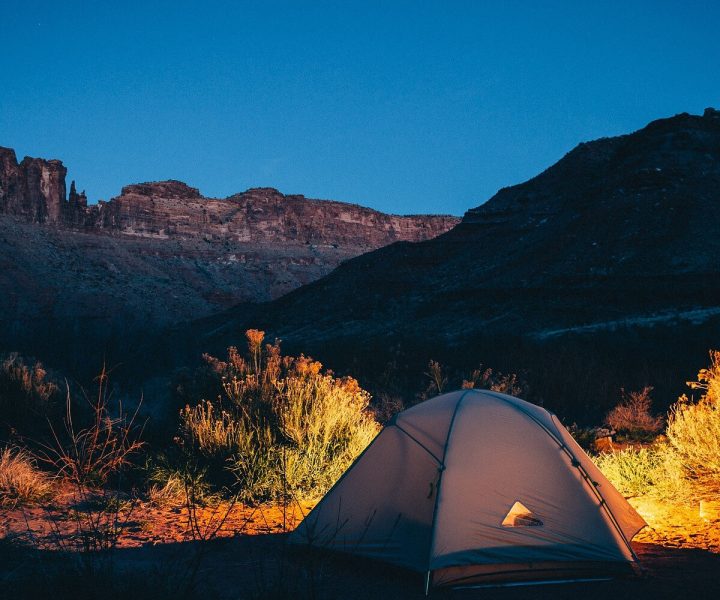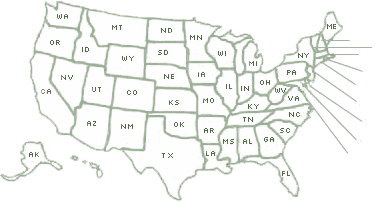
Camping should be about the promise of a long and peaceful getaway from the hustle and bustle of the city, a connection with nature and a feeling of freedom, but it often comes with a dark side: the debris and litter of thoughtless campers and the destruction of animals, soil, and vegetation.
Being an eco-friendly camper is more critical than ever, as more and more people are embracing camping, and we should all help to protect and preserve our outdoor spaces. Learn from the famous Leave No Trace motto of “Take nothing but pictures. Leave nothing but footprints”, and let it inspire your overall camping goal; to have as little impact on nature as possible.
Follow these tips and learn how to be an eco-friendly camper, and make sure to put them into practice on all your subsequent camping trips, ensuring a better camping experience for you, your fellow campers, and the environment.
Buy used gear
Unless you’re an avid camper, there’s no reason to spend a lot of money purchasing all new camping equipment. Look for tents, backpacks, and other gear at second-hand stores or check out trading and swapping sites.
When you are looking for gear, either new or used, always consider eco-friendly versions instead of just buying the first thing that catches your eye. Plastic tents will remain on landfills decades after being thrown out, so look for tents made out of recycled materials, hemp, or cotton. Instead of looking for a down sleeping bag, consider one that is made with synthetic insulation.
You could also consider renting your gear, especially if you don’t camp very often or want to try camping in a different season and need other gear. There are plenty of places you can rent equipment online and you can often find a package deal so you get everything you need from one site.
Leave your gadgets at home
There’s no need to bring any unnecessary gadgets with you, especially those that need to be plugged into your car or require batteries. Air mattresses or sleeping pads can be inflated using a foot pump, and you can listen to the sounds of nature instead of bringing along a radio. This will mean you’re technology free and you’ll have a lighter load to carry.
Use the power of the sun
It’s no surprise that it will be dark as soon as the sun sets, so it’s essential that you bring some sort of light for your camping trip. This is an area where you can also be eco-friendly; consider investing in solar-powered lights, instead of relying on battery-powered lanterns, flashlights, and headlamps.
To ensure that you will always have a source of light, leave your solar-powered lights and lanterns out during the day while you’re off hiking or doing other activities, as they will soak up the required energy from the sun and be ready to use by nighttime. For any other necessary gadgets (such as a GPS or your phone), bring along a solar charger.
Getting to your campsite
Fossil fuels are very harmful to the environment, as they release carbon dioxide when burned, which traps radiation from the sun and ends up causing a gradual rise in the earth’s overall heat. Do you best to combat this, either using public transport to reach the trailhead or carpooling with other fellow campers. It may be a tight fit in the car, but you’ll get the satisfaction of being an eco-friendly camper.
Remain on the trail
Whether you’re just hiking to your campsite and back, or you’re planning a weeklong trip into the backcountry with multiple hikes, it’s important that your impact on the environment is minimized. Always follow trail markers, cairns, and signs and stay on the beaten path. Wandering off the trail and/or trailblazing can lead to soil erosion and can cause native plant life to be trampled.
Choose the right campsite
National and state parks have well-established campsites, with designated areas for campfires and tents, so always use one of these campgrounds when visiting these parks. If you’re headed to the backcountry where there are no designated campsites, choose your campsite carefully.
Your tent should be set up on a durable surface such as a rock slab, packed dirt, or gravel. This way, you’ll have a secure place to build your campfire, and you won’t have too much of an impact on nature. Avoid fragile ecosystem such as those on the banks of rivers and lakes, even if they are more scenic.
Cook responsibly
One of the biggest things you’ll need to plan for before leaving for your camping trip is cooking, and there are a few things that can make your meals more eco-friendly. One of the easiest is to bring reusable dishes and cooking utensils. Disposable plastic or cardboard plates may be more comfortable and easier to carry, but the environment and nature will thank you for reducing the amount of trash you produce.
Build a safe campfire
A campfire is a camping classic, and it comes in handy when you need to cook, boil water, or just roast marshmallows or stay warm. To ensure your campfire doesn’t get out of hand, follow these fire safety rules:
- Inform yourself of any fire restrictions or bans during forest fire season
- Contain the fire in a fire pit. If there are no fire pits on your campsite, build a basic one using large rocks or stones
- Your fire should be built away from flammable items such as backpacks, clothing or tents
- Make sure you keep the fire under control by building a small fire
- Never burn your food, as it attracts wildlife
- The fire should be put out at least forty five minutes before you go to bed or leave the site. To make sure the fire is entirely out, douse the coals with water and stir the ash to check for any remaining embers
If you want to be even more eco-friendly, ditch the campfire and try out a portable electric stove for cooking. There are several on the market that are safe for the environment, small, and inexpensive.
Ditch the plastic water bottles
You’re going to have to drink lots of water during your camping trip, especially if you’re going to combine it with other activities such as hiking or mountain climbing. This would require you to bring along quite a few plastic water bottles, so ditch them altogether and bring a refillable water bottle or hydration pack.
If there are no water sources near your campsite, then you can bring a large container filled with water, and just use it to refill your bottle or pack. To avoid your bottle or hydration pack from smelling, use a bladder cleaning kit, which will leave your water odorless and it will taste as fresh as it should.
Use environmentally friendly toiletries
When packing for a trip, it’s easy to purchase mini versions of your toiletries, including shaving gel, soap, shampoo, and conditioner. You might also be tempted to toss in your regular body wash, and toothpaste into your pack, but these toiletries will harm the environment, as well as add unnecessary weight to your bag.
Most of the cleaning products, moisturizers, and soaps we use daily are full of unnatural ingredients and chemicals. Therefore, to keep the campsite free of harmful chemicals residing in these toiletries, look for eco-friendly and biodegradable items.
Know how to dispose of your waste
When nature calls on your camping trip, you need to know how and where to dispose of human waste. Established campsites will typically have a composting toilet or an outhouse, so there’s not much you need to think about. When you’re out in the backcountry, however, things get a bit more complicated.
Look for a spot that is at least 200 feet away from water sources or the campsite itself. When you’ve found your secluded place, dig a hole at least 6 inches deep, and cover it once you’ve done the deed. Never leave soiled toilet paper in the woods; bring along a paper bag to put it in until you can dispose of all your trash.
Take your trash with you
No matter how many reusable items you bring with you and as eco-friendly as you try to be, most of the time you’ll still be left with some garbage at the end of your camping trip. You need to pack it all up and take it with you, leaving your campsite precisely as you found it. This includes not harming the wildlife, no crushed grass, and no smoldering fire pits.
 Your Privacy Choices
Your Privacy Choices


 The
The